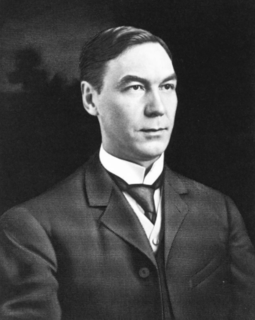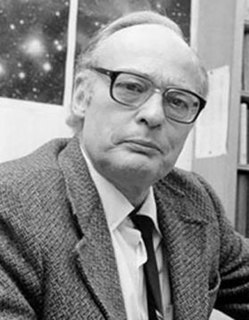A Quote by Thomas Reid
When we contemplate the world of Epicurus, and conceive the universe to be a fortuitous jumble of atoms, there is nothing grand in this idea. The clashing of atoms by blind chance has nothing in it fit to raise our conceptions, or to elevate the mind. But the regular structure of a vast system of beings, produced by creating power, and governed by the best laws which perfect wisdom and goodness could contrive, is a spectacle which elevates the understanding, and fills the soul with devout admiration.
Quote Topics
Related Quotes
The body is a fortuitous concourse of atoms. There is no death for the body, only an exchange of atoms. Their changing places and taking different forms is what we call 'death.' It's a process which restores the energy level in nature that has gone down. In reality, nothing is born and nothing is dead.
Let man then contemplate the whole of nature in her full and grand majesty... No idea approaches it. We may enlarge our conceptions beyond all imaginable space; we only produce atoms in comparison with the reality of things. It is an infinite sphere, the center of which is everywhere, the circumference nowhere.
In the world of the very small, where particle and wave aspects of reality are equally significant, things do not behave in any way that we can understand from our experience of the everyday world...all pictures are false, and there is no physical analogy we can make to understand what goes on inside atoms. Atoms behave like atoms, nothing else.
The Universal mind is not only intelligence, but it is substance, and this substance is the attractive force which brings electrons together by the law of attraction so they form atoms; the atoms in turn are brought together by the same law and form molecules; molecules take objective forms and so we find that the law is the creative force behind every manifestation, not only of atoms, but of worlds, of the universe, of everything of which the imagination can form any conception.
A scenario is suggested by which the universe and its laws could have arisen naturally from nothing. Current cosmology suggests that no laws of physics were violated in bringing the universe into existence. The laws of physics themselves are shown to correspond to what one would expect if the universe appeared from nothing. There is something rather than nothing because something is more stable.








































